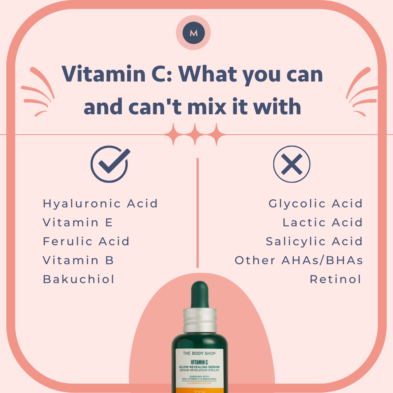
We’re often told we should increase the amount of Vitamin C we have – in terms of both food and skincare – but what is Vitamin C good for and how does it actually work?
When many of us think of Vitamin C, we likely think of oranges and how good they are for our immune system. Yet Vitamin C offers a host of benefits for the skin when applied topically, as well as when consumed.
In the latest in our Ingredient Spotlight series, we’re focusing on these benefits and explain how you can add more Vitamin C into your skincare routine – often without spending a fortune.
FURTHER READING: The best Vitamin C serum and creams
Vitamin C is a potent antioxidant. This means it neutralises free radicals and helps your body repair damaged skin cells – you can read more about free radicals and antioxidants in our guide to the best foods for your skin.
This article focuses on the benefits of Vitamin C when it comes to skincare. However, if you’re looking for advice on how to use Vitamin C more generally, check out this NHS guide.
FURTHER READING: Does anti-ageing skincare actually work? Here’s what the evidence says
 Shutterstock
Shutterstock When we take in oxygen, our body can split this oxygen into unpaired electrons. Because electrons prefer to be in a couple, the single, split electrons – also known as free radicals – become unstable and travel around the body looking for a partner.
At a moderate, regulated level, free radicals can give us more energy and boost our immune system but in order to keep them regulated, we need to balance them out with antioxidants. If free radicals get too high, or antioxidant levels drop too low, the movement of the electrons around our bodies can damage our cells.
Smoking, alcohol, pollution, fried foods, and more throw this balance out of whack and this puts our bodies into what’s known as oxidative stress. Oxidative stress has then been linked to cancer, Alzheimer’s disease, and Parkinson’s disease.
It’s also associated with causing premature ageing, including fine lines and wrinkles.
When eaten, or applied to the skin, the antioxidant Vitamin C helps counteract the damage caused by free radicals and restore balance.
READ NEXT: Skin food: The best foods for clear, healthy skin – and why they work
Due to the fact that Vitamin C is good for increasing antioxidant levels, which in turn helps to keep free radicals in check, Vitamin C benefits include:
Vitamin C is good for all of these skin-related conditions because it accelerates the production of collagen and elastin. It additionally plays a role in the production of melanin, which means that with continued use Vitamin C can help prevent dark spots and reduce pigmentation.
However, to gain all these amazing Vitamin C benefits, you need to look for the best Vitamin C serums that contain L-ascorbic acid or derivatives. This is the most stable and effective form of Vitamin C and is usually the most effective at tackling skin concerns while causing minimal irritation.
We should also note that, while it can protect the skin from the harmful effects of UV rays and UV damage, it’s not a substitute for SPF and should always be used alongside SPF products.
FURTHER READING: What SPF do I need? The best moisturisers with SPF
 mamabella | mamabella
mamabella | mamabella There are certain ingredients that play nicely on the skin with Vitamin C and there are others that can cause all sorts of problems.
We’ve outlined these in the image to the left, but to summarise:
Do: Vitamin C works well with Vitamin E, ferulic acid, hyaluronic acid, and Vitamin B
Don’t: Vitamin C should not be used with retinol, or any AHAs (Alpha Hydroxy Acids) or BHAs (Beta Hydroxy Acids). This includes: glycolic acid, lactic acid, and salicylic acid.
That doesn’t mean that you can’t use any of those ingredients in your routine if you’re using Vitamin C. Instead, it means you shouldn’t apply them to your skin at the same time, or one after the other. For example, using Vitamin C in the morning and retinol in the evening is absolutely fine.
Maybe: As a rule, Vitamin C shouldn’t be used with niacinamide but if they are in a product together, it means that either they have been tested to work together at those specific levels, or the type of Vitamin C (or derivative) is suitable for use with niacinamide
Before introducing Vitamin C – or any acids – to your skincare routine for the first time, particularly if you have sensitive skin, we recommend you start gradually. Use the new product every other day, or even more infrequently than that, before increasing its usage.
Alternatively, start with a lower concentration – around 5% (Vitamin C can go up to 20%+) – and build up a tolerance.
Vitamin C is potent stuff and you will only need a few drops each time you apply.

